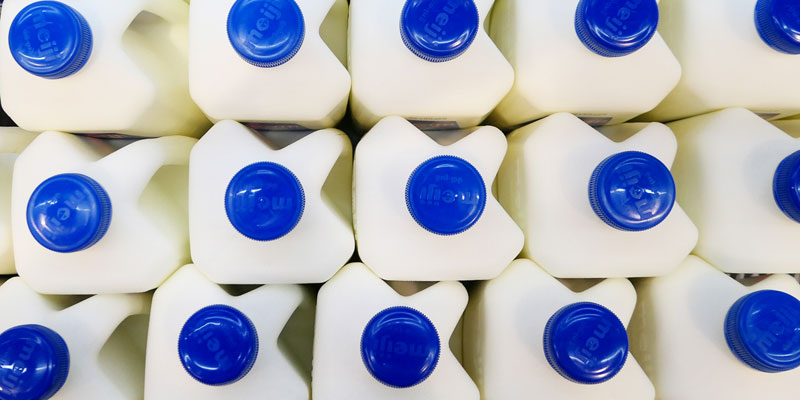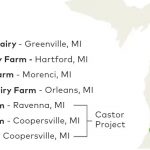
Many Canadians today face an unsettling reality. While Canada has long been known as a land of plenty, rising living costs and food insecurity are becoming increasingly common concerns. And a piece of federal legislation—which may soon become law—threatens to make the situation even worse.
According to Statistics Canada, rising prices are now “greatly affecting” nearly half of Canadians who are subsequently struggling to cover basic living costs. Even more alarming, 53 per cent are worried about feeding their families. For policymakers, few national priorities are more pressing than the ability of Canadians to feed themselves.
Between 2020 and 2023, food prices surged by 24 per cent, outpacing the overall inflation rate of 15 per cent. Over the past year, more than one million people visited Ontario food banks—a 25 per cent increase from the previous year.
Amid this crisis, a recent academic report highlighted an unforgivable waste. Since 2012, Canada’s dairy system has discarded 6.8 billion litres of milk—worth about $15 billion. This is not just mismanagement, it’s a policy failure. And inexcusably, the federal government knows how to address rising prices on key food staples but instead turns a blind eye.
Canada’s dairy sector operates under a “supply management” system that controls production through quotas and restricts imports via tariffs. Marketing boards work within this system to manage distribution and set the prices farmers receive. Together, these mechanisms effectively limit competition from both domestic and foreign producers.
This rigid regulated system suppresses competition and efficiency—both are essential for lower prices. Hardest hit are low-income Canadians as they spend a greater share of their income on essentials such as groceries. One estimate ranks Canada as having the sixth-highest milk prices worldwide.
The price gap between the United States and Canada for one litre of milk is around C$1.57. A simple calculation shows that if we could reduce the price gap by half, to $0.79, Canadians would save nearly $1.9 billion annually. And eliminating the price gap would save a family of four $360 a year. There would be further savings if the government also liberalized markets for other dairy products such as cheese, butter and yogurt. These lower costs would make a real difference for millions of Canadians.
Which brings us back to the legislation pending on Parliament Hill. Instead of addressing the high food costs, Ottawa is moving in the opposite direction. Bill C-282, sponsored by the Bloc Quebecois, has passed the House of Commons and is now before the Senate. If enacted, it would stop Canadian trade negotiators from letting other countries sell more supply-managed products in Canada as part of any future trade deal, effectively increasing protection for Canadian industries and creating another legal barrier to reform. While the governing Liberals hold ultimate responsibility for this bill, all parties to some degree support it.
Supply management is already causing trade friction. The U.S. and New Zealand have filed disputes (under the Canada-United States-Mexico Agreement and the Comprehensive and Progressive Agreement for Trans-Pacific Partnership) accusing Canada of failing to meet its commitments on dairy products. If Canada is found in violation, it could face tariffs or other trade restrictions in unrelated sectors. Dairy was also a sticking point in negotiations with the United Kingdom, leading the British to suspend talks on a free trade deal. The costs of defending supply management could ripple farther than agriculture, hurting other Canadian businesses and driving up consumer costs.
Dairy farmers, of course, have invested heavily in the system, and change could be financially painful. Industry groups including the Dairy Farmers of Canada carry significant political influence, especially in Ontario and Quebec, making it politically costly for any party to propose reforms. The concerns of farmers are valid and must be addressed—but they should not stand in the way of opening up these heavily regulated agricultural sectors. With reasonable financial assistance, a gradual transition could ease the burden. After all, New Zealand, with just 5 million people, managed to deregulate its dairy sector and now exports 95 per cent of its milk to 130 countries. There’s no reason Canada could not do something similar.
Bill C-282 is a flawed piece of legislation. Supply management already hurts the most vulnerable Canadians and is the root cause of two trade disputes that threaten harm to other Canadian industries. If passed, this law will further tie the government’s hands in negotiating future free trade agreements. So, who benefits from it? Certainly not Canadians struggling with food insecurity. The government’s refusal to modernize an outdated inefficient system forces Canadians to pay more for basic food staples. If we continue down this path, the economic damage could spread to other sectors, leaving Canadians to bear an ever-increasing financial burden.
You can now read the most important #news on #eDairyNews #Whatsapp channels!!!
🇺🇸 eDairy News INGLÊS: https://whatsapp.com/channel/0029VaKsjzGDTkJyIN6hcP1K
























